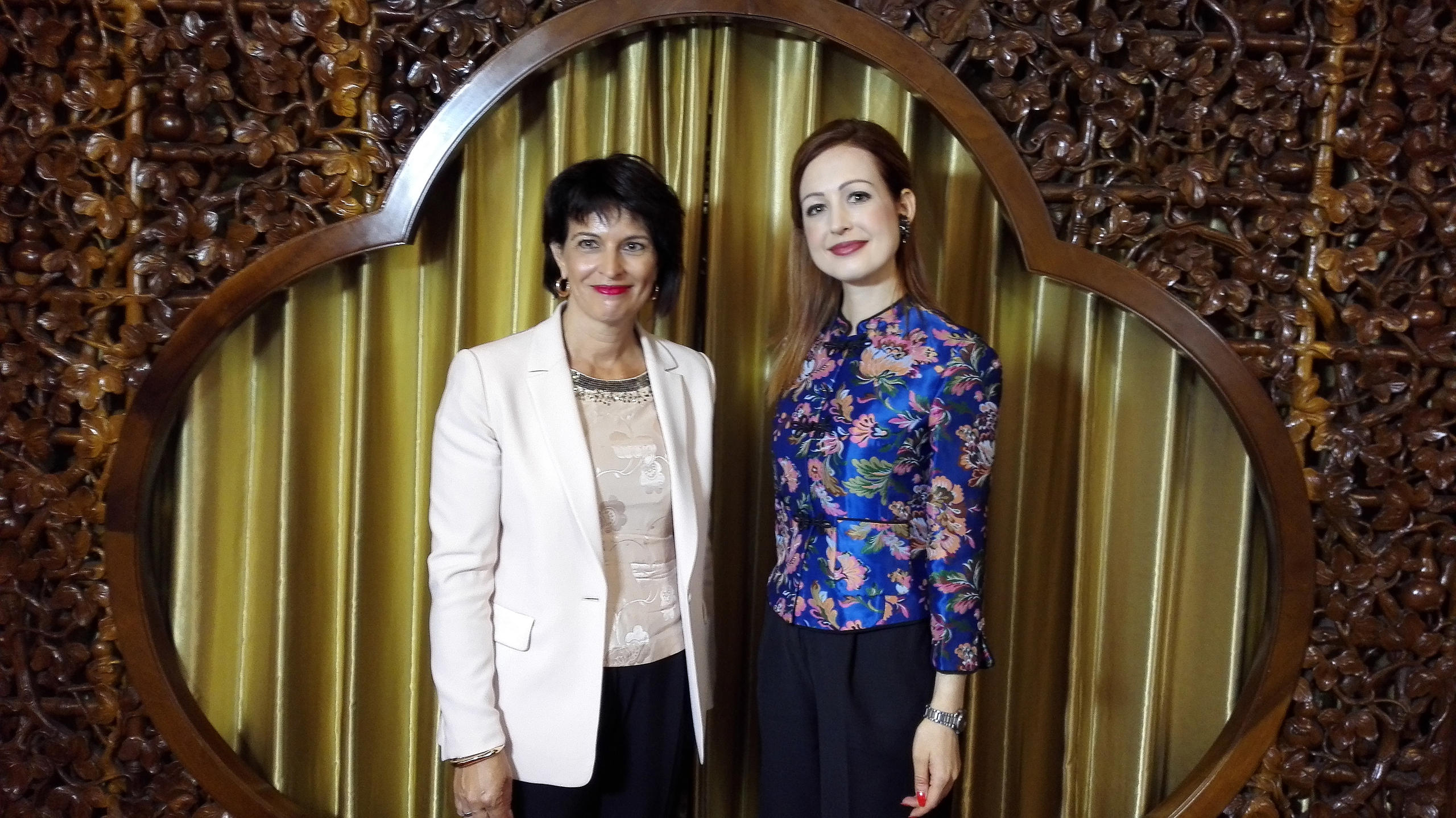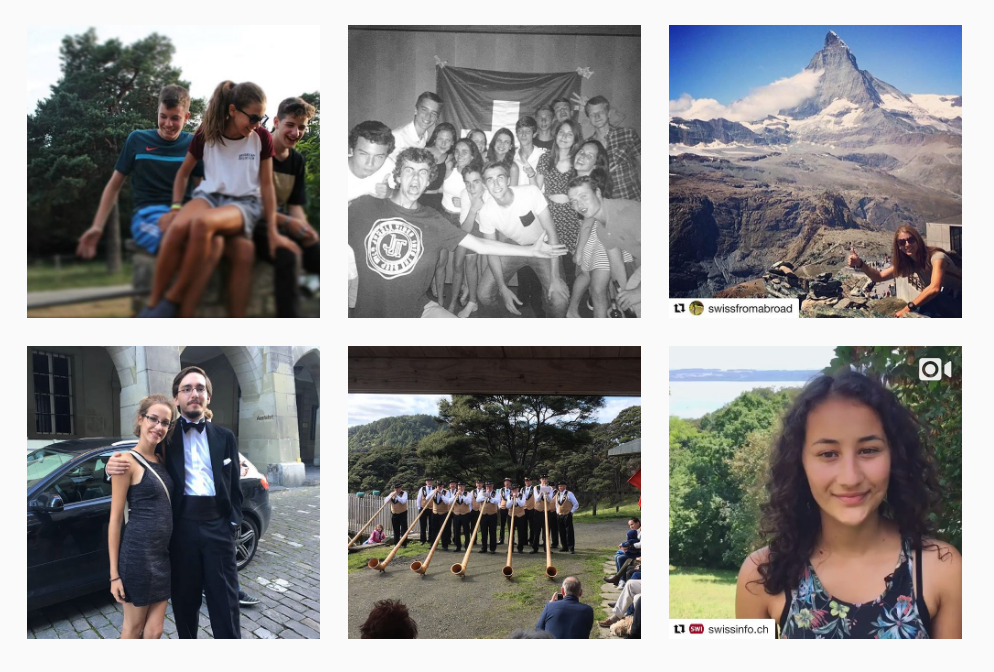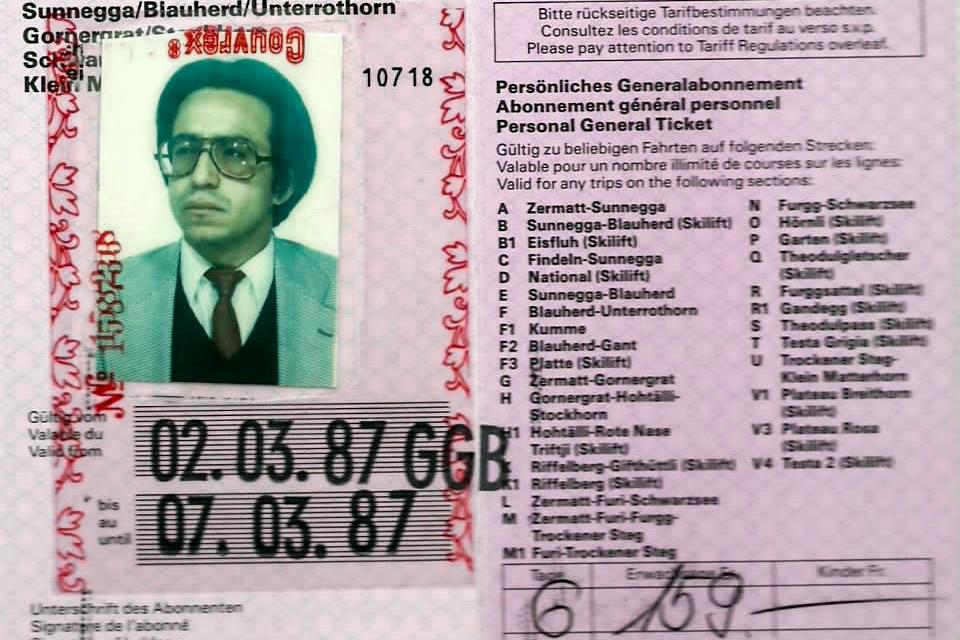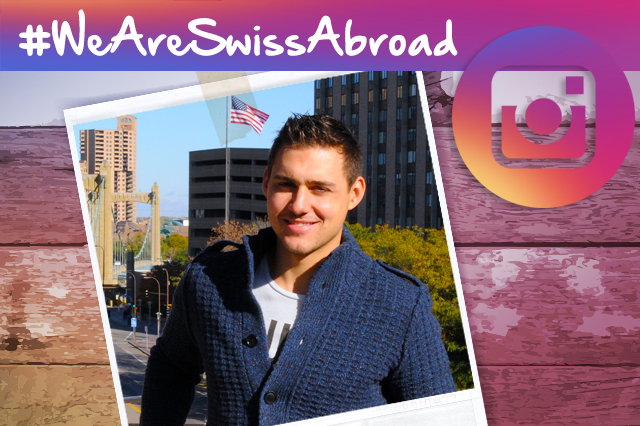Martina Fuchs: a cultural diplomat at Chinese state TV

Polyglot business journalist Martina Fuchs works for Chinese state television. But she says that China’s strict media censorship doesn’t affect her much.
Fuchs misses concerts and live music the most. This year, the 34-year-old will be moving to London.
swissinfo.ch: Why did you leave Switzerland?
Martina Fuchs: I made my first real independent step abroad when I was 16. I was on holiday in Portugal with my friend and decided to travel on to Morocco. I called my parents from Tangiers and told them: ‘Mum, Dad, I’m in Africa.’ They were completely astounded.
My ‘nomad life’ really started after that. When I was 18, I did work experience in Tanzania during the school holidays, where I learned Swahili. I did an extra year during my television journalism studies, which I spent at the American University in Cairo, and I took courses in Arabic and studied in Yemen and Syria.

More
Dear Swiss living abroad…
My first job was at Reuters in London. Then I worked for four years in Dubai for the news agency as a television journalist and business correspondent. By then I was really bitten by the travel bug. In 2012 I went to Beijing, to work as a business journalist at Chinese state television CCTV.
swissinfo.ch: Is it a one-way ticket trip or are you planning one day to go back to Switzerland?
M.F.: This year I am planning to settle in London, which is only 1.5 hours away from Zurich by plane. I’m really looking forward to making little trips to Switzerland, as my parents come from Zurich. I’m not planning to go back permanently though, Switzerland is just too small for me.
Foreign cultures, languages and adventure have been my passions since I was very young. I developed my fascination for learning languages as a young girl. I now speak nine languages: German, French, English, Spanish, Portuguese, Arabic, Chinese, Italian and Swahili.
swissinfo.ch: You were working for Chinese state television. What is your job like?
M.F.: For me, journalism is the most exciting job in world. Working as a business reporter for Chinese state television means I get to know Chinese culture first hand, learn Mandarin, make contacts and build up networks. The most important thing for me is to build bridges between different cultures.
There are so many misunderstandings and stereotypes in the world. I see myself as a ‘cultural ambassador’, to carry out a dialogue leading to a better understanding between peoples. I hope that, through communication and media work, I can make some contribution to peace in the world.
Martina Fuchs (centre) interviewed Uli Sigg (to her right), a renowned Swiss expert on China and former Swiss ambassador to Beijing.
As a business reporter, I report on finance and economics topics in China and the Asian region.
My work is very varied, every day is different. In the morning, you could have an interview with Doris Leuthard, who is on a visit to the Chinese capital, then a press conference with the richest man in China, Wang Jianlin, head of the Chinese conglomerate Wanda, followed by a live studio show.
Foreigners need a lot of patience and time to get to know the culture and to build networks. ‘Guanxi’ (contacts) are extremely important and a key factor in who has power and influence.
swissinfo.ch: Where are you living? What is life and the cuisine like there?
M.F.: At the moment I am living in Beijing. Despite the prejudices people abroad have against China and the Chinese as great meat-lovers, it’s actually a dream place for vegetarians. There is a huge choice of vegetables, eggs, mushrooms and types of tofu.

More
Meet the people who read swissinfo.ch
The social life is not so attractive. There aren’t so many places for going out and I especially miss live music and concerts.
swissinfo.ch: What is better in China than in Switzerland? What is the biggest difference to Switzerland?
M.F.: China is really where it is all happening. Because of the economic growth, life never stands still – quite the contrary. You can experience something amazing every day, or learn a new Chinese character, meet new people. The air pollution, which is known as ‘airpocolypse” is the biggest downside. I often yearn for fresh Swiss alpine air.
swissinfo.ch: What is your view of Switzerland from afar?
M.F.: Nostalgic. Switzerland is a true paradise, but after a few days there, I always get bored and I’m ready to get back.
swissinfo.ch: What is the political situation like in China? Has media freedom been more curtailed under President Xi Jinping? Have you experienced censorship and control?
M.F.: Politics and the Comminist Party have very little influence on my daily life and work. As I work for the finance and business programme ‘Global Business’ I have nothing to do with politics.
The only exception is China’s National People’s Congress in March, when I report on the government reforms from the Great Hall of the People or from Tiananmen Square. I was also allowed to meet Chinese Premier Li Keqiang there and discuss my suggestions for the economic development and opening up of China. You realise where the limits are.
swissinfo.ch: Are you a social media user (WeChat etc)? What are your experiences there?
M.F.: The bulk of communication in the newsroom, studio and with the camera men takes place in Chinese on WeChat, a chat service for smartphones. WeChat is a thousand times better than WhatsApp. I can use it to send ‘Hongbaos’ (red envelopes containing money) for New Year, do supermarket shopping and pay taxi drivers…
Martina Fuchs has to renew her visa every year.
I am on Facebook, Twitter, Weibo (the Chinese Twitter) and Instagram. You can get past the ‘Great Firewall’ and Internet censorship and use a VPN server to access blocked sites.
swissinfo.ch: Do you take part in Swiss votes and elections?
M.F.: I’d really like to, but due to doing lots of travelling and my work, I unfortunately miss most of the voting dates.
swissinfo.ch: What do you miss the most about Switzerland?
M.F.: The good air. Measurements of dangerous fine dust (PM2.5) show 46% of the days have “very unhealthy” values of over 250 microgramms per cubic metre of air – this is tenfold the World Health Organization’s limit. I never go out of the house without wearing a facemask or having one in my handbag.
I also miss Swiss chocolate. You can buy Toblerone and even Lindt bunnies in China, but these imported products are not fresh and have been stored a long time.
Give global Switzerland a face! Label your Instagram photos with the hashtag #WeAreSwissAbroadExternal link.
Translated from German by Isobel Leybold-Johnson

In compliance with the JTI standards
More: SWI swissinfo.ch certified by the Journalism Trust Initiative

















You can find an overview of ongoing debates with our journalists here . Please join us!
If you want to start a conversation about a topic raised in this article or want to report factual errors, email us at english@swissinfo.ch.